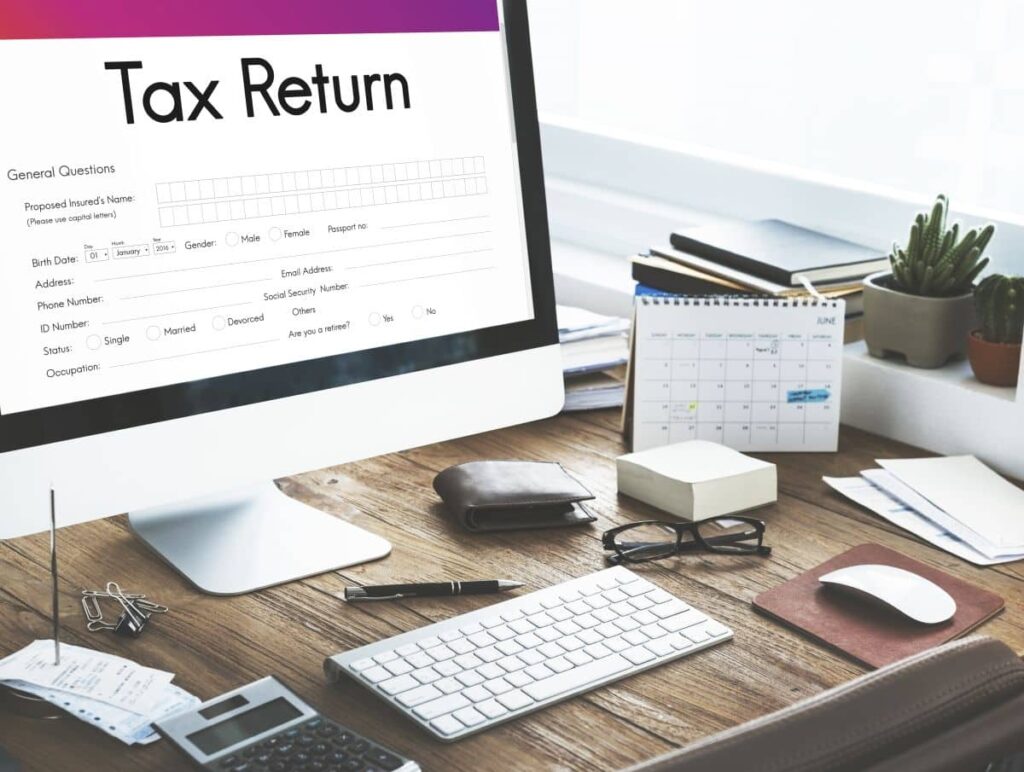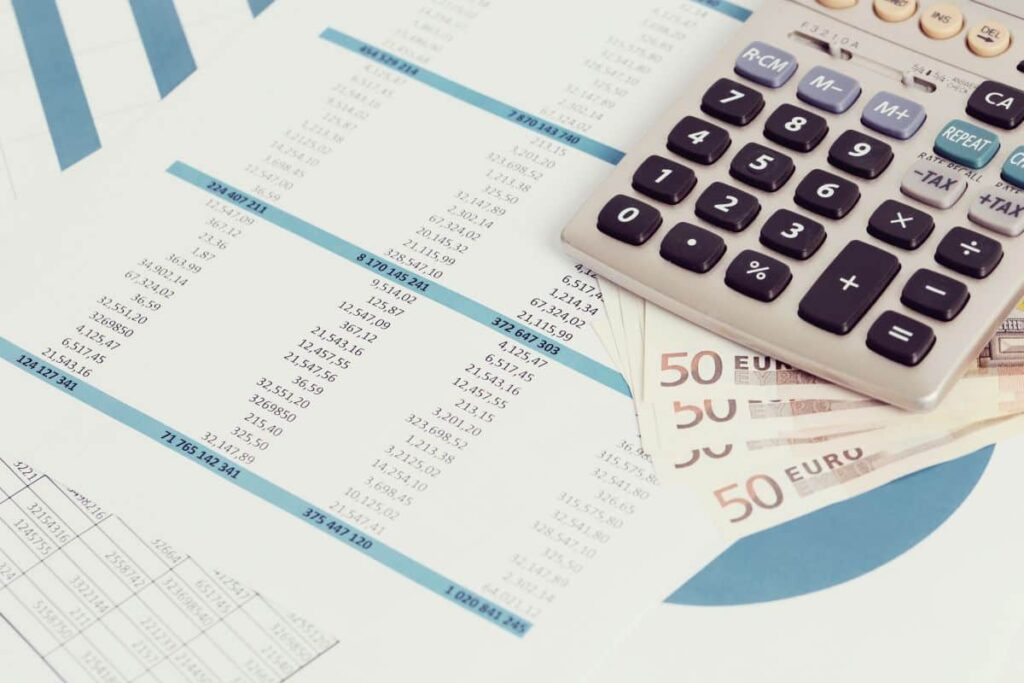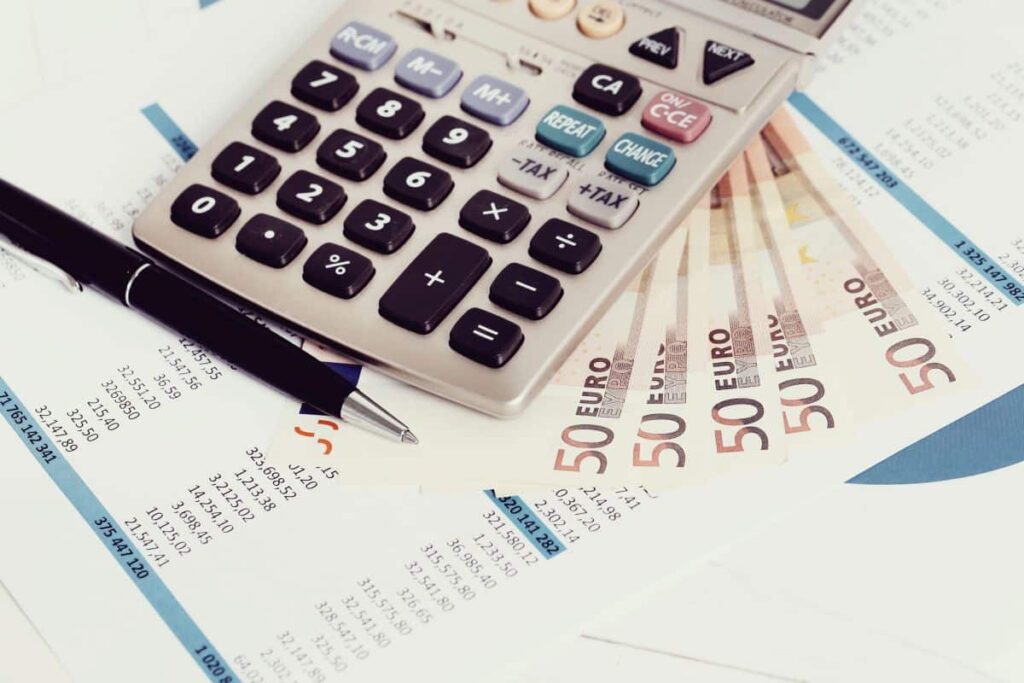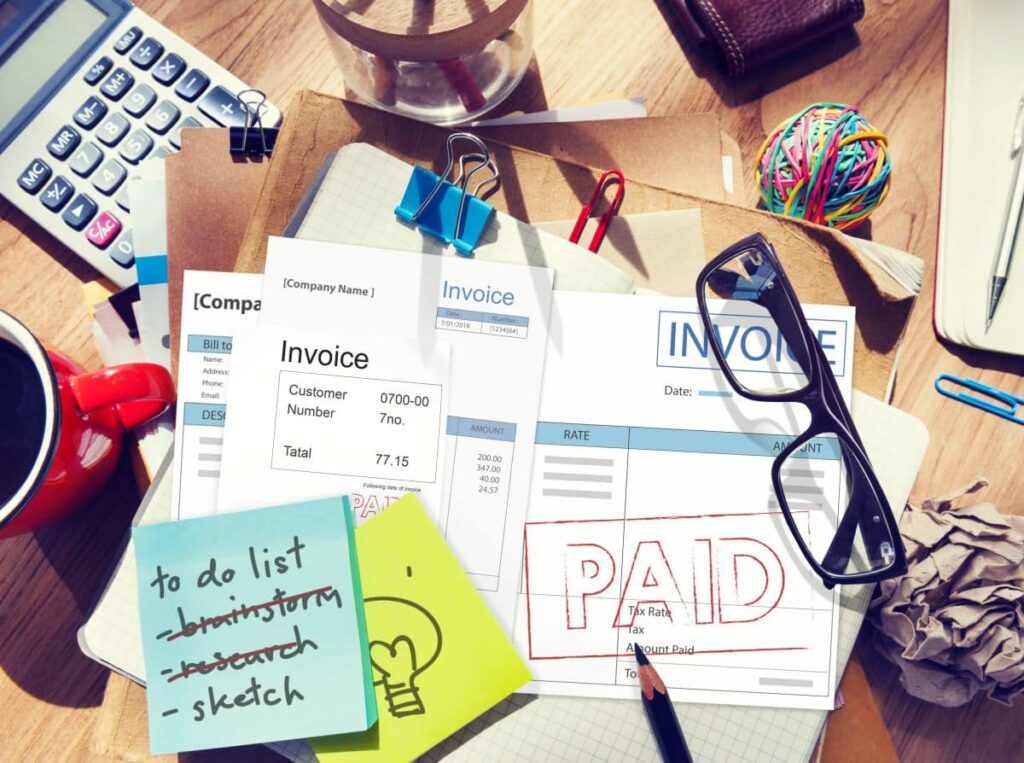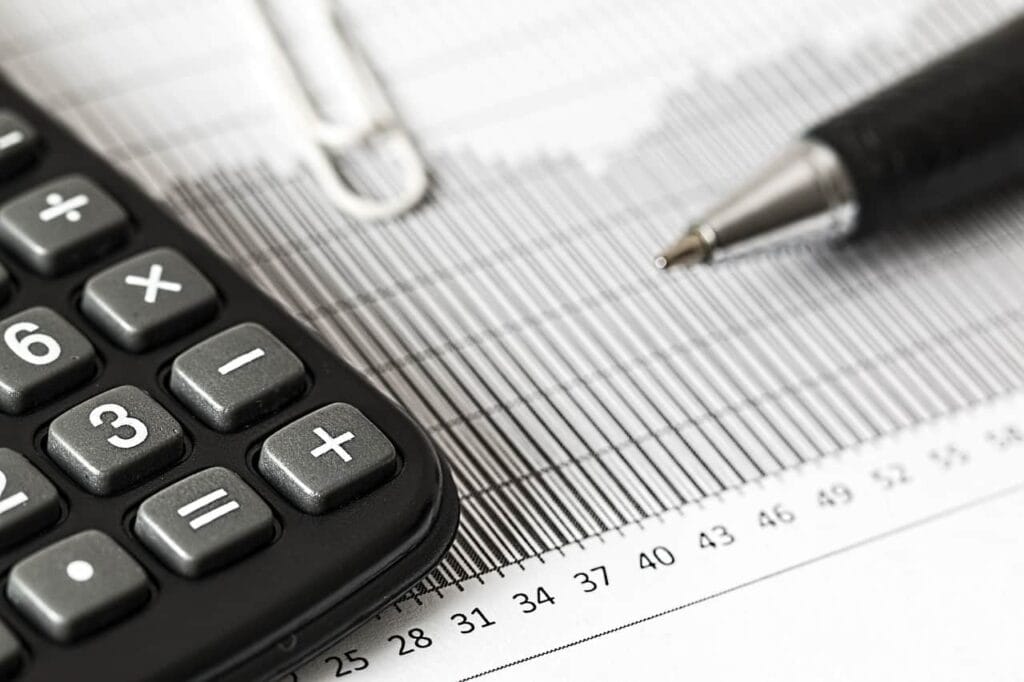Tax time is quickly approaching, and it’s important to make sure you claim back as much money as possible through your tax refund.
It's not exactly the most exciting task in the world - after all, who likes doing their taxes? But despite how tedious it can be, with a bit of know-how, preparation and savvy decision-making, there's plenty of cashback on offer.
That's why we've put together this guide on how best to maximise your return when lodging your tax return here in Australia! So let us help alleviate some stress from filling out forms: pen in one hand and calculator in another – let's get started grabbing those dollars!
Use myTax To File Online
myTax is the free online tax return offered by the Australian Taxation Office (ATO). You can use it to register your return. For online lodging, you are going to require a myGov account that is linked to the ATO. Returns that are submitted in this manner are typically processed within a span of two weeks.
Using myTax for lodging is simple and completely free. By the end of July, most of the data on your employer, banks, government agencies, and health funds will be immediately incorporated into your tax return. After that, you only need to ensure that the information is accurate, add any revenue that is missing, add any deductions you need, and then hit the submit button. After that, MyTax will figure out your tax liability for you.
The Australian Taxation Office (ATO) provides "how-to" films that might assist you in submitting your return electronically through the use of myTax.
Put Every Cent You Make On The Record
The ATO will base the majority of its assessment on the information included in pre-filled forms that it receives from your employer and other financial institutions. However, it's possible that there are other sources of income that you need to factor in.
The following are examples of frequent forms of income that are required to be declared:
- employment income
- reimbursements from the government
- super pensions and annuities
- income from investments, which may include interest, dividends, rent, or capital gains
- money derived by participating in the sharing economy, such as through Uber or Airbnb
- payments made for compensation and insurance
- earnings from overseas
You can find more information on the income you are required to declare by visiting the website of the ATO.
Maximise Your Tax Refund
1. Claim All The Deductions You Can
Tax deductions are the single simplest and most typical method to get a larger tax refund. You are legally entitled to claim a deduction for any work-related expenditure your boss still needs to reimburse you for. If your boss has already reimbursed you for the expenditure, you cannot claim a deduction for it. These costs include the following items:
- Expenses incurred for the use of a vehicle and for travel, including commutes to and from work
- Costs associated with attire, laundering, and professional dry cleaning
- Smartphone, internet and home phone expenditure
- Costs related to one's own education
- Tools, machinery, and various other types of equipment
- Additional deductions related to employment
Work-related expenses
To be eligible for a deduction for costs associated with employment, you must:
- You should have put the money out of your own pocket, as you were not compensated for it.
- The expenditure must have a clear connection to the production of the income.
- You are required to possess a record to demonstrate this (usually a receipt)
If the expenditure was incurred for both personal and business reasons, the only part of the expenditure that can be deducted is the business-related part.
Below are a few common costs associated with work that you might be entitled to deduct from your taxes.
1. Car and travel
When you drive for work, you might well be eligible to deduct the portion of the cost that is connected to the usage of a car that you own:
- to and from a different workplace on the same day for the same company while performing work-related duties
- between your house and your place of employment in specific cases, like when you have to transport cumbersome tools and equipment
You are unable to take a deduction for the following:
- Even if you reside a significant distance away from your typical office or if you operate outside of typical business hours, you should still make your commute to and from home on a regular basis.
- If your spouse or employer is listed as the lessee on the novated lease for your vehicle, the following applies:
2. Clothing and uniforms

If the article of clothing you wore to work qualifies as one of the categories listed, you are eligible to deduct the money you spent on it:
To be eligible for reimbursement for the price of a mandatory uniform, your boss must recognise and approve of its uniqueness. In addition to this, you should be specifically compelled to wear the uniform by a policy or arrangement that governs the workplace.
You are eligible to take a tax deduction for the expense of protective gear and footwear if you wear them to your job in order to avoid getting hurt or getting sick on the job. The clothing needs to have characteristics or purposes that set it apart from conventional clothes, such as steel-capped boots. There should also be a connection between the activities that are related to your profession, the hazards that are provided by the environment in which you operate, and the protective apparel.
You are eligible to take a tax deduction for clothing that is "occupationally specific" if it is worn in connection with a specific profession, trade, vocation, occupation, or calling. For instance, the robes worn by judges or the chequered pants used by chefs. This doesn't contain any of the items that are customarily worn by a variety of different professions. Take, for instance, the clothing that individuals in trades wear to their jobs.
3. Self-education
If the study has a direct bearing on your current position, you might be eligible to receive reimbursement for related costs. For instance, the costs associated with the courses, the books, the stationary, the internet, the home office, and the professional periodicals.
The study needs to preserve or develop your abilities or knowledge, or it should boost the likelihood that your existing employment will pay you more. If the purpose of your education is to improve your chances of finding a new employment, you will not be eligible for a tax deduction for those costs.
4. Tools and other equipment
If you employ tools or equipment for work-related purposes, you can deduct the cost of such items from your taxable income. In most cases, depreciating assets include things like tools and equipment. However, if you purchased them for more than $300, you are only allowed to deduct the amount that they have decreased in value over the course of their useful life.
The Australian Taxation Office (ATO) has developed occupation and industry guides as well as details regarding work-related deductions to assist taxpayers in determining what they are eligible to claim and what they are not.
Other deductions
You are also eligible to claim the following items:
- union fees
- an expense incurred in the administration of your financial dealings
- if you do not pay for it out of your super fund, you should consider purchasing income protection insurance.
- personal super contributions you made to your super fund
- gifts and donations made to groups that have been recognised as deductible gift recipients by the Australian Taxation Office.
Investment expenses
It's possible that you'll be capable of deducting the expenses associated with generating interest, dividends, or other types of investment income.
Examples include:
- the cost of using borrowed funds to make financial investments.
- costs related to investment properties
- purchasing magazine and newspaper subscriptions as an investment
- cash that you spent for advice on investments.
More details relating to deductions for investment income can be found on the ATO website.
2. Save Your Receipts
When it comes time to file our taxes, we have to spend hours looking for receipts for items purchased within the previous year. This is not just a waste of time but also has the potential to result in the forfeiture of a tax refund worth hundreds or even thousands of dollars. So get some folders, label them, and start saving every receipt that might be pertinent.
When you pay for something relevant to your job, make sure to save the receipt and file it away in the appropriate folder for your taxes.
If you are working from home, even just sometimes, you should keep all of your receipts, including those for the phone, the power, the water, the internet, and any office equipment you use. Also, make sure you keep a record of the amount of time you devote to working from home by keeping a diary.
Have you put money into real estate? Always make sure to keep the receipts for any money you pay.
Donated to a charitable organisation? Place the receipts in a folder to keep track of them.
Are you going to a business meeting by car? You should jot down the dates and mileage in a logbook or diary, but you should leave the distance to and from your house.
Keep track of everything, even if you need clarification on whether a certain expense is tax deductible or not. But, again, your tax professional ought to be capable of providing you with advice on this matter.
3. Donate to Nonprofit Organisations
Reduce the amount of money you owe in taxes while contributing to a worthy cause at the same time! When viewed individually, a donation of $20 to a charity or the acquisition of a book for $10 seems like little.
Still, when added up over the course of a year, these very modest expenditures can amount to hundreds of dollars. You are eligible to submit a deduction claim for any amount that is greater than $2. Just make sure you keep the receipt for your records!
4. Prepay Your Bills
Although it is simpler to cover your expenses weekly or monthly, making one large payment for some bills, such as union dues and professional subscriptions, is preferable whenever possible.
Because you are claiming a tax deduction this year for expenditures that will be entirely or partially related to next year, you are not only going to be able to recoup these expenditures sooner, but you'll also receive a larger refund for this year due to the fact that you are claiming the deduction.
5. Invest Your Money In A Retirement Account
This is of particular advantage to couples in which one person does not work or generates an income of less than $40,000, taking into account super contributions and fringe benefits. In such cases, the other spouse in the pair can utilise super contributions to decrease the amount of tax that they pay.
The person with the higher income can contribute up to $3,000 to the non-working spouse's super fund and claim a tax offset of 18 per cent, which comes out to $540. This option is available for couples where one member does not work.
Those who work for low pay can also donate additional revenue to their super, and the government will give fifty cents for every dollar that is given to super by the individual.
Everyone earning up to $45,000 per year stands to gain from contributing additional funds to their retirement plan.
6. Sell Off The Loss-Running Investments
If you've made money through investments or if you have sold shares, you will be responsible for paying taxes on that income. So trying to get rid of any assets that are already operating at a loss is the most effective strategy to reduce the total amount owed in taxes.
The "capital loss" might be deducted from the "capital gain" if certain conditions are met. Caution is advised, however, if you intend to sell shares that are currently trading at a loss and then repurchase them in the following tax year.
This is because the ATO has decided to issue a tax ruling that states any tax benefits gained in this manner will be null and void, and suitable sanctions will be imposed instead.
7. Review Your Health Insurance
It is time to review your health insurance policy and determine which diseases and services are covered, whether you should continue to carry insurance at all, and whether you should switch providers. Then, when filing your tax return, if you intend to claim a tax offset for the premium you pay for private health insurance, it only makes sense to ensure that the deduction is legitimate.
How You Can Put That Tax Refund To Use
1. Pay off debt
According to data from the Australian Bureau of Statistics, a significant proportion of families in Australia are in some financial obligation. It could be a debt from a credit card, a personal loan, or even a mortgage (or a combination of all).
A little over a fourth of this group had a total debt that was at least three times the amount of money that they had available to spend each year.
If you use even a portion of your tax refund to wipe off part or all of your bills, you will have a much easier time managing your cash.
2. Increase your savings
Placing any unexpected money, such as money from a windfall or a tax refund, into savings while you mull over your options is a prudent thing to do if you are still determining what you should do with the money right immediately.
There are accounts that will provide you extra interest during the first few months that you have the account, which will add to the initial sum that was sent to you by the tax office. Once you've determined how you want to utilise your money, you'll be able to get access to it again.
Another convenient option for putting your money to work is to put it into a term deposit. Because you won't be able to utilise it for a certain period of time, the desire to spend it right immediately is eliminated; but, while you are deciding how you want to put it to use, it can earn some decent interest in the interim.
3. Boost your retirement savings
You have the ability to boost the amount of your retirement savings by making a personal contribution to either your own or your spouse's retirement account.
This cash is in addition to any mandatory super contributions that are made to your account by your workplace, as well as any contributions that you make through any salary sacrifice agreement that you might have.
Contributing cash to your superannuation account after taxes have already been taken out is an easy method to add extra funds, and if you have the financial flexibility to do so, you can significantly increase the amount of money you have saved in your retirement account.
Please be aware that there are limits placed on the amount you can contribute to your retirement account during any given tax year. To ensure that you stay within these limits, there may be a correlation between your age and whether or not your contributions are made before or after taxes.
Therefore, it would be best if you got guidance from an independent and experienced financial and tax advisor before coming to any conclusions on your retirement savings, including any further contributions.
Get further details from the Australian Taxation Office.
4. Invest your money in the stock market
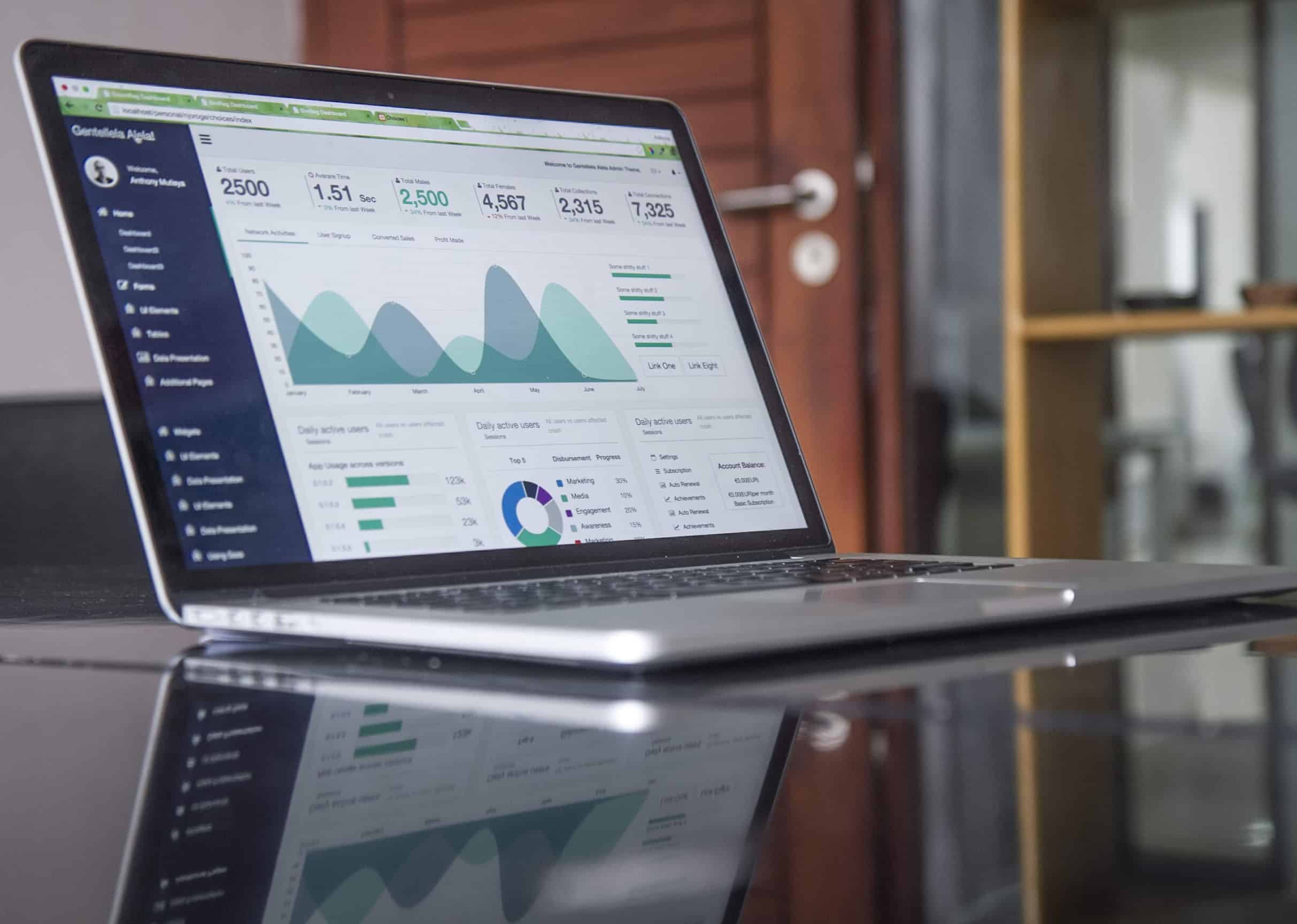
You may find that including stocks in your investment portfolio is beneficial because they enable you to accumulate savings and create income, both of which assist in mitigating the effects of inflation. Keep in mind, however, that there is always an element of risk associated with any investment you make, and stocks are not an exception.
Diversification can lessen some of the risks that come with the volatility of the market, and there are multiple strategies to do it. One option is to make use of exchange-traded funds (ETFs). A share represents an investment in a single firm, but an investment in an exchange-traded fund (ETF) reflects an investment in a wide range of businesses and assets; you might think of it as a basket of stocks.
Before you start investing, it is critical to get as much information as possible by conducting research and staying abreast of the most recent market developments.
5. Boost the value of your property
Remodelling your home or apartment can increase its value and give it a cosier, more lived-in atmosphere, all of which are benefits of doing so. However, before you begin the remodelling process, you should double-check to see if the local council has any standards or laws.
Be conscious of the fact that, similar to other types of investments, the value of real estate markets is not always assured of going up. When renovating, it's simple to make errors like overinvesting in the project or putting too much emphasis on the incorrect places.
Keep to your spending plan, and don't try to accomplish too much in too short of a time with the money you have available. Even if you only paint one room, this might be a cost-effective way to spruce things up for the new fiscal year.
Get Support From A Licenced Tax Agent
Ensure that the individual you hire to do your taxes is a licenced tax agent if you intend to hire a professional to handle your taxes for you. You are able to access the tax practitioner register to see if the accountant or agent you are considering hiring is registered.
Most registered agents have access to special lodgement schedules, allowing them to submit tax returns for their customers after the October 31st deadline.
Understand that you are accountable for the claims that you submit on your tax return, regardless of the method that you decide to use to file it. Therefore, ensure your deductions are valid and that you report all your income before you or your adviser files your return.
Frequently Asked Questions
...
Example of income tax applied to earnings.
| Annual salary | $60,000 |
|---|---|
| Marginal tax rate | 32.5% |
| Annual tax paid | $11,067 |
| Annual take home pay | $48,933 |


